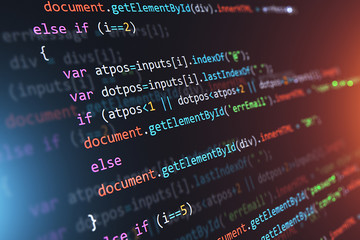Explore beyond bytes and bits: law craft in the information age. Understand how legal frameworks evolve beyond bytes and bits to address the challenges of data privacy, intellectual property, and more.
Introduction
In the past few decades, technological progress has advanced at an unprecedented rate, changing every facet of human life. From how we communicate to how we work, technology has not only transformed industries but has also introduced new challenges for lawmakers. As we transition from the industrial age to the Information Age, the legal framework that once governed the tangible world of goods, services, and labor must now account for the intangible. This shift brings us to the concept of “beyond bytes and bits: law craft in the information age.” The focus of this post is to explore how law professionals craft legal principles in a digital environment, ensuring the rights of individuals, corporations, and governments are balanced, all while keeping pace with the rapid expansion of technology.
The Information Age
The Information Age has revolutionized our world in ways once unimaginable. Technology’s rapid advancement has led to an explosion of data, altering how we live, work, and interact with each other. In this new era, bytes and bits—representing the digital representation of information—are at the core of almost everything. While traditional laws may have been sufficient to address tangible, physical concerns, digital realities demand a new legal approach that can handle issues such as data privacy, cybersecurity, and intellectual property. Crafting laws in this space requires a deep understanding of technology’s implications, as well as the ethical considerations surrounding its use. The question becomes: How do we legislate something as intangible and ever-evolving as digital data?
The Role of Technology in Shaping Modern Law
Lawmakers in the digital era face the challenge of responding to technological innovations that often outpace the creation of new laws. Take for example the rapid emergence of the internet. Initially, there were no clear legal frameworks in place to address issues such as online fraud, intellectual property theft, or cyberbullying. As technology evolves, the legal profession must be proactive in anticipating future technological challenges. It is essential to craft laws that not only deal with current technology but also account for the innovations on the horizon. This dynamic interplay between technology and law creates a landscape where legal craft must continuously adapt, ensuring that justice and fairness are maintained in the face of rapid change.
Data Privacy A Modern Legal Dilemma
Perhaps no area of law has been more significantly impacted by the Information Age than data privacy. As more and more personal data is collected by businesses, governments, and other entities, there is an increasing need for legal frameworks that protect individuals’ privacy. The advent of the internet and the proliferation of social media platforms have made it easier for organizations to gather vast amounts of personal data. This data, when misused or compromised, can lead to serious consequences for individuals and society as a whole. Laws such as the GDPR (General Data Protection Regulation) in Europe are steps in the right direction, but questions around data ownership, consent, and usage are still evolving. In crafting laws to protect privacy, lawmakers must balance the benefits of data collection with the ethical considerations of surveillance and individual rights.
 Intellectual Property in the Digital Age
Intellectual Property in the Digital Age
Intellectual property (IP) law has long been a cornerstone of protecting creators’ rights to their work. In the past, this was mainly concerned with physical creations such as books, paintings, and inventions. However, in the Information Age, IP law has had to evolve to address digital creations such as software, music, movies, and online content. The internet has made it possible to disseminate content globally in a matter of seconds, but laws that once protected creators are struggling to keep up with this speed. Crafting effective IP laws in the digital realm requires balancing the rights of creators with the realities of the digital landscape.
The Rise of Cybersecurity and Legal Implications
As our world becomes more interconnected, the risk of cyber-attacks has escalated. Whether it’s hackers stealing personal information, ransomware attacks crippling organizations, or nation-states engaging in cyber warfare, cybersecurity is now a critical component of legal frameworks. In the Information Age, laws surrounding cybersecurity are paramount, but they also present a complex challenge. The international nature of the internet complicates matters further, as cybercrimes often cross borders, creating jurisdictional issues. Laws must not only hold perpetrators accountable but also require organizations to implement strong security measures. However, there is a fine line between ensuring security and infringing on civil liberties, making this a difficult area for lawmakers to navigate.
The Digital Divide Access to Technology and the Law
While technology has become an essential tool in our daily lives, it is not equally accessible to all. The digital divide—an inequality between those who have access to technology and those who do not—presents significant challenges for lawmakers in crafting fair and just policies. In the Information Age, access to digital tools and the internet is crucial for participating in economic, educational, and social opportunities. Lawmakers must ensure that all individuals, regardless of their socio-economic status, have the tools and resources they need to thrive in a digital society. This includes addressing issues such as affordable internet access, digital literacy, and closing the technological gap between developed and developing nations.
Artificial Intelligence and the Future of Legal Craft
Artificial intelligence (AI) is already starting to influence the legal profession, from predictive analytics in case law to automated document drafting. As AI continues to evolve, its impact on law will only increase. AI raises significant questions around accountability, particularly in areas such as autonomous vehicles, military applications, and algorithmic decision-making. If an AI system makes a mistake, who is responsible for the consequences? These questions challenge traditional legal frameworks and require new laws to address the unique nature of AI. Crafting these laws is a delicate process that involves balancing innovation with regulation.
Blockchain A New Legal Frontier
Blockchain technology, which underpins cryptocurrencies like Bitcoin, is transforming industries far beyond finance. With its decentralized nature, blockchain presents a new challenge for lawmakers, who must navigate the complex issues surrounding digital currencies, smart contracts, and decentralized finance (DeFi). Blockchain could revolutionize everything from supply chain management to voting systems, but its anonymous, borderless, and decentralized qualities complicate the creation of laws that can govern it. As blockchain continues to evolve, lawmakers will need to craft laws that can accommodate its disruptive potential while ensuring that it is used ethically and responsibly.

The Future of Legal Systems in the Information Age
Looking ahead, the future of legal systems in the Information Age will be shaped by both technological advancements and social considerations. One of the key challenges will be ensuring that laws keep pace with technological innovations while also addressing the broader societal impacts of those innovations. This requires lawmakers to not only be reactive but proactive in understanding emerging technologies and anticipating their consequences. The law must adapt to protect citizens while promoting innovation, ensuring that the Information Age is one of progress, equity, and justice.
Conclusion
The beyond bytes and bits: law craft in the information age, requiring lawmakers to craft laws that go beyond traditional considerations of tangible property and resources. From data privacy and cybersecurity to intellectual property and AI, the legal profession is in the midst of a transformation. As technology continues to advance, the law must evolve to address the complexities of the digital world, ensuring that justice and fairness are upheld in the face of rapid change. In crafting laws for the Information Age, it is essential to strike a balance between fostering innovation and protecting individuals’ rights, ensuring that society as a whole benefits from the digital revolution.
Read Also: How i sleep at night knowing i’m failing all my cl – tymoff











